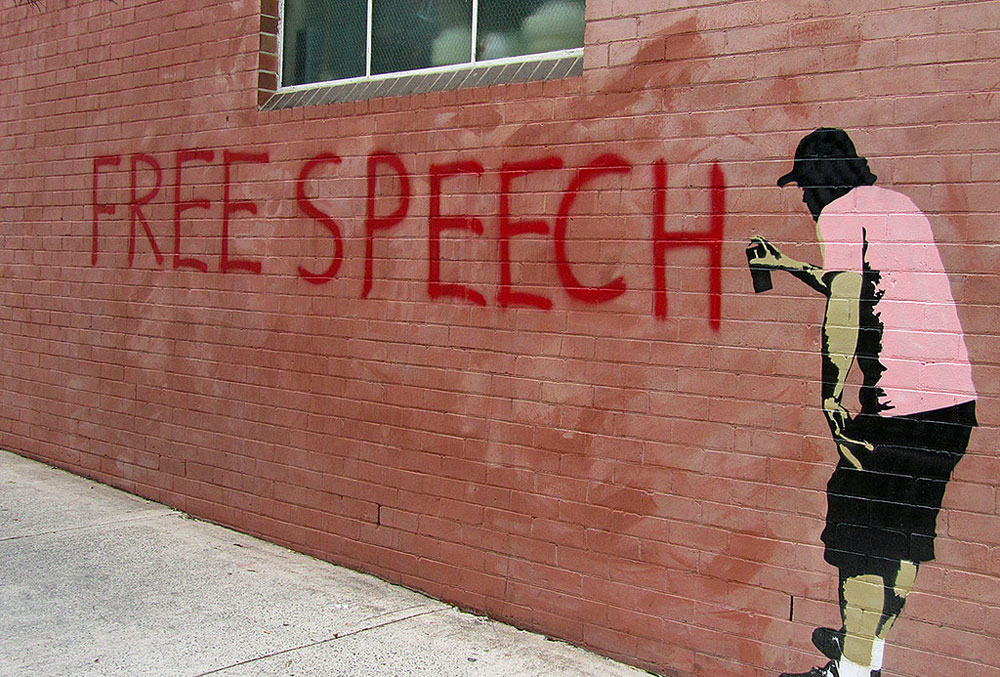
September 24, 2019; Chronicle of Higher Education
Who is most protected on a college campus? That’s a question the University of Michigan is struggling with, as a case against its bias response teams wends through the courts.
Bias response teams (BRT) are one way universities have found to deal with the rise of hate crimes on their campuses. The BRT works through a website on which students may confidentially report a “campus climate concern,” or incident of bias. The team reaches out to the reporting individual and offers support. They may invite the perpetrator to a conversation or to engage in restorative justice. Where they feel it’s appropriate, the BRT can report incidents to the campus police, counseling services, or the Office of Student Conflict Resolution (OSCR). They cannot, however, mete out consequences themselves or even compel students to participate in conversations.
As the language on the University of Michigan’s page has been changed recently, it may be more instructive to look at Hamilton College’s example. It distinguishes between bias and hate crime but makes clear that biased behavior is “unacceptable at Hamilton College and will be treated as a serious offense.”
In May, a campus group called Speech First filed for declaratory and injunctive relief against the University of Michigan in Ann Arbor, claiming that its bias response teams violated students’ first amendment rights. A district court declined to grant that injunction. On Monday, sixth circuit appeals court judge J. McKeague ordered the district court to reconsider.
McKeague’s reversal hinged on the type of harm students could claim to have suffered. The legal particulars are not relevant, but McKeague asserted that members of Speech First suffered “objective chill” by the university because although “Speech First recognizes that the Response Team lacks any formal disciplinary power and that bias incidents are not directly punishable…the Response Team acts by way of implicit threat of punishment and intimidation to quell speech.”
Basically, Speech First claims that the BRT’s ability to report incidents to campus authorities infringes upon students’ first amendment rights, because it intimidates them into policing their own speech. Speech First argues that the definitions of “bullying” and “harassment”—which the university took directly from the Merriam-Webster Dictionary—were vague and subjective, and therefore intimidated students.
Sign up for our free newsletters
Subscribe to NPQ's newsletters to have our top stories delivered directly to your inbox.
By signing up, you agree to our privacy policy and terms of use, and to receive messages from NPQ and our partners.
First, we must ask, how is it that people who feel their free speech limited when they are told they may not bully others claim both the harm and the moral high ground here?
On a less hypothetical note, we recall readers to Cyndi Suarez’s piece from 2018 on “The Exclusivity of Ideological Diversity.” Responding to clamors for ideological diversity on college campuses—a demand that often goes hand in hand with claims about infringed speech—Suarez asked, “How does one have a conversation across ideology when one side thinks the basic human rights of the other are debatable?”
And that’s the crux of the problem. The inequities are so extreme, the bias so deeply embedded in American systems and norms, that efforts to achieve a level of safety and dignity for marginalized communities can be felt as an attack on the basic rights of dominant groups. For organizations like Speech First, it is more tolerable to perpetuate environments in which students of color, women, gender nonconforming individuals, and others must constantly police themselves to remain safe, than to ask students in dominant groups to think about the impact of their words.
In their article “Respecting Differences? Challenging the Common Guidelines in Social Justice Education,” Özlem Sensoy and Robin DiAngelo explain that common notions of fairness, like considering all opinions equally and declaring a learning environment “neutral space,” actually quell the speech of nondominant groups by default. They write, “Everyone’s perspective is not equally valid when some are uninformed, unexamined, or uphold existing power inequities.” The bias response teams are a response to this idea that harmful speech must be recognized and examined, and its source constructively engaged.
Lest there be some David and Goliath visions floating in readers’ heads, in which a few beleaguered students fight a behemoth university and its liberal bureaucracy, let us disillusion you: Speech First has ties to and has received assistance from the Koch family. They are based in Washington, DC, where they have legal and public relations firms on retainer. Founder Nichole Neily, who has had several jobs with Koch-related nonprofits, has stated that taking universities to court is Speech First’s strategy du jour.
Koch involvement at universities is far from new, but these fights must be recognized for what they are: efforts to perpetuate a status quo that explicitly and implicitly prioritizes the dominance of some groups and their discomfort with change over the rights and humanity of others.—Erin Rubin













